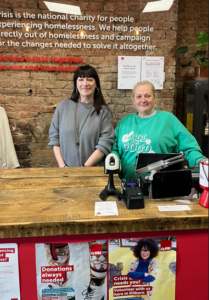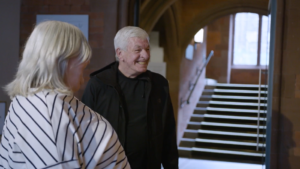Brits on acne meds are unaware of dangers of UV rays

As summer approaches, Dr Neel Patel, GP at LloydsPharmacy Online Doctor, is concerned there is a lack of understanding about the photosensitising side effect of acne medications. Dr Patel explains the precautions people taking prescription acne medications must take.
Some acne medications can make your skin sensitive to sunlight
“If your acne is moderate to severe, and you haven’t seen any success with over-the-counter treatments, your doctor may recommend prescription acne treatments. Many of these medications prescribed to treat acne make your skin more sensitive to ultraviolet (UV) light from the sun and artificial sources like tanning beds.
“Known technically as photosensitivity, this means sun exposure can cause painful damage to your skin and increase your risk of developing skin cancer. Even if you don’t typically burn, your chances of burning become much higher. And the effects can be far more severe than traditional sunburn, leading to blistering and peeling, itchy rashes, scaly bumps and changes in pigmentation.”
If you’re using these medications, it’s important to protect your skin
“As we move into summer, anybody using these medications must take extra precautions to protect their skin from sun damage. UK guidelines suggest sun protection is not necessary on days when the UV Index (UVI) is 1 or 2, for most people. However, if the UVI is over 3, you should protect your skin.”
It’s even more important if you’re going on a hot holiday
“In popular holiday destinations close to the equator like Dubai, Sri Lanka, Thailand and Mexico, the average UVI – which measures solar radiation in terms of potential damage to the skin and eyes – can be as high as 11 or 12. To put this in perspective, the highest UVI seen in the UK is approximately 8.”
Not all acne medications cause photosensitivity
“While the NHS recommends that a sunscreen of at least SPF30 is used daily between March and October, especially when the sun is hottest between 11am and 3pm, not all acne treatments raise your risk of photosensitivity. Topical antibiotics, azelaic acid and the contraceptive pill should not increase your skin’s sensitivity.
These acne medications can cause photosensitivity
Benzoyl peroxide
Topical retinoids
Antibiotic tablets
Isotretinoin
Benzoyl peroxide
“Often one of the first treatments recommended for mild to moderate acne, benzoyl peroxide comes in the form of a gel or face wash and works as an antiseptic to reduce bacteria on your skin. You may see it referred to by its brand name, Acnecide.
“When using acne treatments containing benzoyl peroxide, you should aim to avoid strong sunlight and use an oil-free sunscreen with SPF30 or above.
“It’s worth noting benzoyl peroxide is not just found in prescription treatments. A plethora of over-the-counter skin care products contain benzoyl peroxide so check the ingredients.”
Topical retinoids
“Available as creams or gels, topical retinoids work by removing dead skin cells on the surface of the skin. This prevents them building up within hair follicles.
“It’s important to avoid excessive exposure to sunlight and UV when using topical retinoids, or medications that contain retinoids like Epiduo and Ziana. Also try to apply these treatments sparingly.”
Antibiotic tablets
“Usually prescribed in addition to a topical treatment, oral antibiotics like tetracycline, doxycycline or erythromycin can kill acne-causing bacteria which can make your skin sensitive to sunlight and UV light.”
Isotretinoin
“Isotretinoin, or Roaccutane as it’s more widely known, comes in capsule form and must be prescribed and supervised by a specialist doctor. It can be effective at treating severe acne.
“Isotretinoin makes your skin more fragile and may increase your skin’s sensitivity to light. You should avoid sunbeds completely and should stay out of the sun as much as possible. Even on cloudy days, you should wear a high factor sunscreen of SPF15 or above when you go outside.”
Some skincare ingredients and treatment procedures also cause photosensitivity
AHAs
Chemical peels
Laser treatment
AHAs
“Alpha Hydroxy Acids (AHAs) are ingredients found in not just anti-blemish non-prescription skincare products but anti-ageing and skin brightening products too. These increase the skin’s sensitivity and risk of sunburn.
“Look out for alpha hydroxy acid, lactic acid, tartaric acid, or glycolic acid in the ingredient list. If one of your skincare products contains one of these ingredients, use sunscreen, wear protective clothing, and limit sun exposure when using this product, and for a week afterwards.”
Chemical peels
“A chemical peel is a solution applied to the face to remove dead cells and stimulate new cell growth. They can be used to reduce the appearance of acne scars.
“As your skin heals, it will be more sensitive to the sun and therefore sunscreen is particularly important for at least a month after treatment.”
Laser treatment
“Laser treatment is a dermatological procedure that can be used to treat mild to severe acne and scarring. It works by using various types of light to remove cells from the surface of the skin and stimulate the reproduction of new cells and collagen.
“This can also cause photosensitivity and a broad-spectrum physical sunscreen with an SPF of at least 30 should be applied every two hours. It’s also a good idea to wear a wide-brimmed hat and sunglasses to protect the delicate skin around the eyes.”
Advice for protecting your skin when taking acne medication
Wear sunscreen every day
Make sure to apply adequate sunscreen
Stay out of the sun where possible
Wear sunscreen every day
“While we would advise staying out of the sun where possible, especially around midday, if you’re going to be outside, protect your skin from the sun by wearing a broad-spectrum sunscreen every single day. If you’re concerned about your suncream breaking you out, choose one that’s labelled oil-free and noncomedogenic or nonacnegenic.
“Where possible, apply topical acne medications in the evening. However, if you have to apply a treatment before applying sunscreen, wait 20 minutes for it to dry completely before applying sun protection over the top.”
Make sure to apply adequate sunscreen
“If sunscreen is applied too thinly, the amount of protection it offers is reduced. Read the directions on your sunscreen and always err on the side of generosity.
“You should reapply every 2 hours, or every 40 minutes when swimming or sweating excessively. Especially on the face, ensure you tap it in instead of spreading it.”
Avoid tanning beds
“Stay away from tanning beds and booths entirely for the whole time you’re using the medication. Tanning beds are a source of UV light and are just as damaging as the sun.”
Dr Patel wants those on acne medication to be aware of the risks
“It’s important to treat moderate or severe acne because inflamed acne can lead to permanent scarring and I’m not suggesting anybody stop using acne medication. I simply want those on acne medications, such as benzoyl peroxide, topical retinoids, antibiotic tablets and isotretinoin to be aware of the increased risk posed by sun exposure, and to take adequate measures to look after acne in the sun.”




